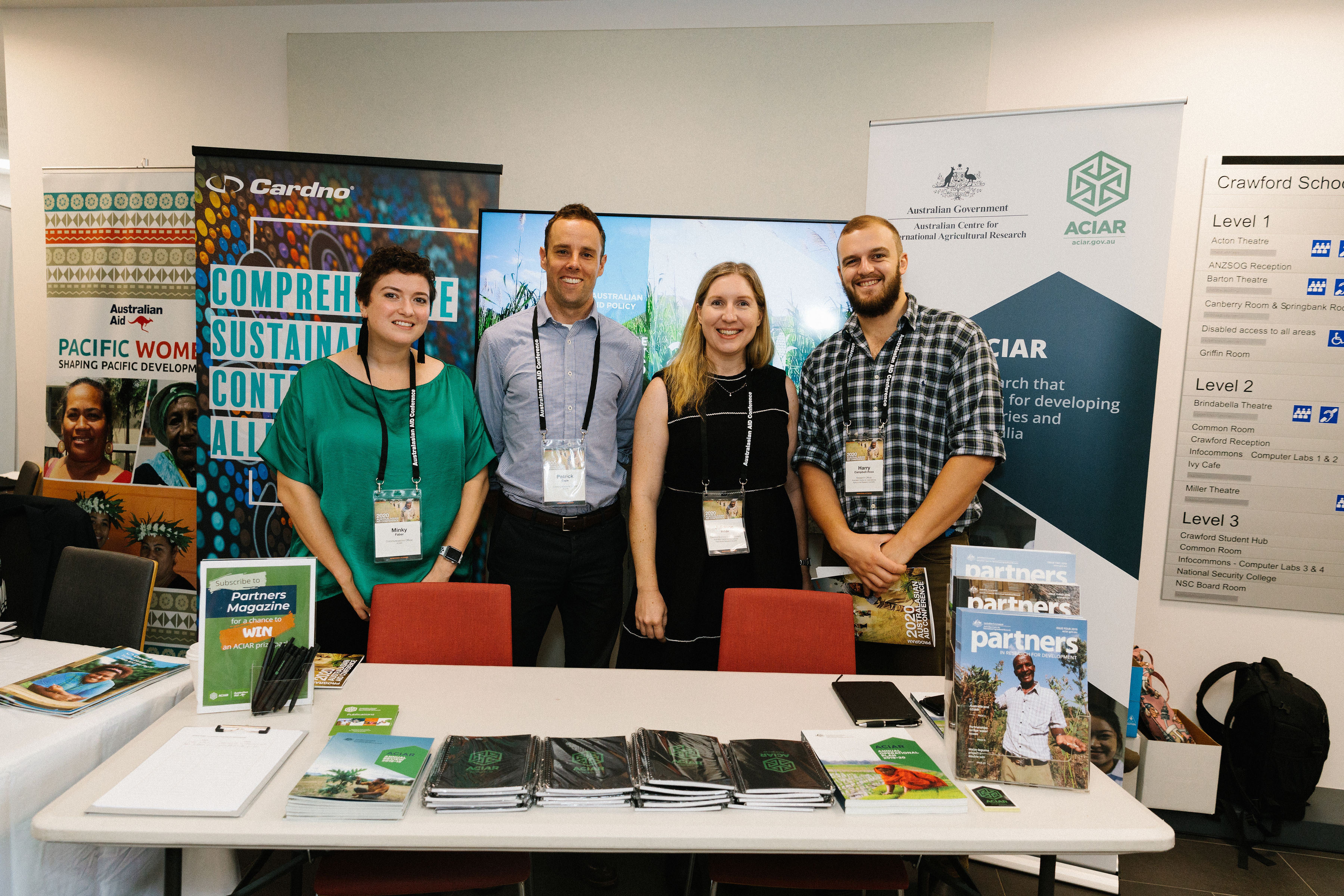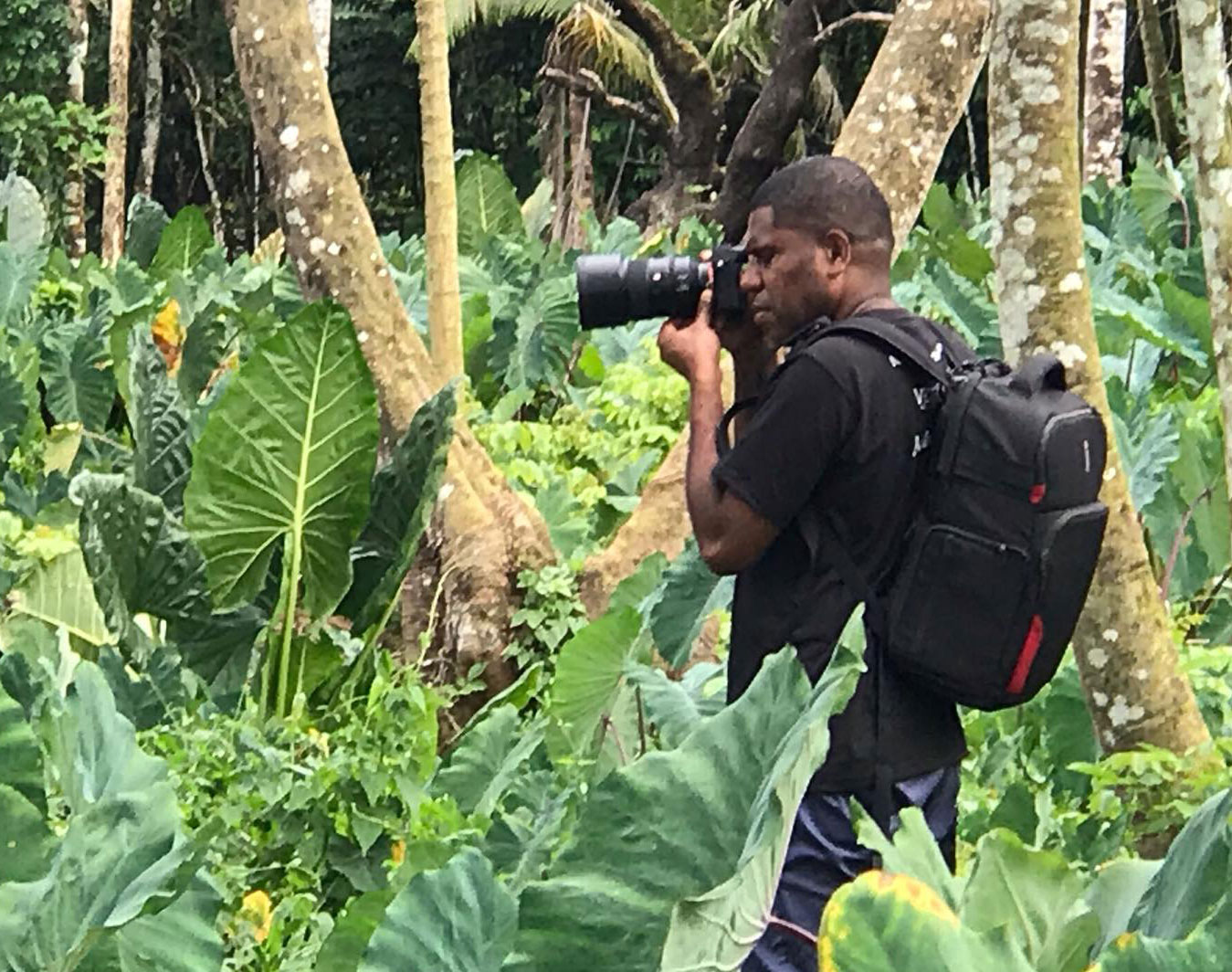Enabling policies for developing smallholder agriculture in Pakistan
(Authors: Muhammad Azeem Khan, Aamer Irshad, Hidayatullah Chhajro, Nazeer Kalhoro, Muhammad Irfan Khalid, Ghazanfar Ali Khan, Kashif Rashid, Abdul Qadir Tareen, Ahmed Ali Zafar, Bhajan Grewal, Jim Lang and Peter Sheehan)
Our influence and impact
Through our outreach activities, we endeavour to extend the influence and impact of the results and outcomes of our diverse research investments. We also have a responsibility to demonstrate to the Australian public the value of government investment through the aid program in international agricultural research.
Despite COVID-19 travel and event restrictions, our outreach team continued throughout 2019–20 to develop a growing range of activities to raise awareness of ACIAR-funded research. This included organising and supporting ACIAR-sponsored events, partnering with The Crawford Fund in event and publicity activities, and publishing our magazine, Partners in Research for Development.
Our social media channels continue to be a key communication tool for the organisation. Over the past three years, our combined following across Facebook, Twitter, Instagram and LinkedIn has increased by more than 1,000%.
Among our major outreach achievements during 2019–20 was the launch of the new Drupal 8 website, which includes improved project, program, country and regional pages, along with improved search functionality and an interactive map. We also launched the ACIAR Research Portal to empower project leaders to be able to create templated websites within the ACIAR-hosted web environment that they can easily administer. A key element of the portal is the ACIAR Biosecurity site, developed in May 2020—a quick-response, COVID-relevant site that curated projects, publications, updates and Q&A with our research team about our work in the region.
We continued to strengthen our network of communications professionals in five country offices: Fiji, Papua New Guinea, Vietnam, the Philippines and Kenya. The network enables ACIAR to find and tell great local stories, ensuring more proactive content is being produced and increasing engagement with our partners and stakeholders.
Events
ACIAR participated in conferences and forums as a contributor of knowledge, co-host and/or sponsor. These included:
- Crawford Fund Parliamentary Conference, Canberra (August 2019)
- 5th Global Science Conference on Climate-Smart Agriculture, Bali (October 2019)
- 2nd Pacific Week of Agriculture, Samoa (October 2019)
- TROPAG 2019: International Tropical Agriculture Conference, Brisbane (November 2019)
- Australasian Aid Conference, Canberra (February 2020)
- Transforming Global Food Systems Under Climate Change – achieving zero emissions, Copenhagen (February 2020)
- The Australasian Agricultural & Resource Economics Society Conference, Perth (February 2020)
- New Era for Food Climate, a global virtual (online) relay event organised by the CGIAR Research Program on Climate Change, Agriculture and Food Security (June 2020)
Scientific publications
ACIAR produces a diverse range of publications that capture and share our results and experience.
Our guides and ‘how to’ manuals provide practical information generated by research projects across the Indo-Pacific region. They cover many aspects of agriculture, fisheries and forestry and are useful to farmers, extension agencies and community organisations, and are valued by scientists, research leaders and policymakers. Publications produced in 2019–20 included:
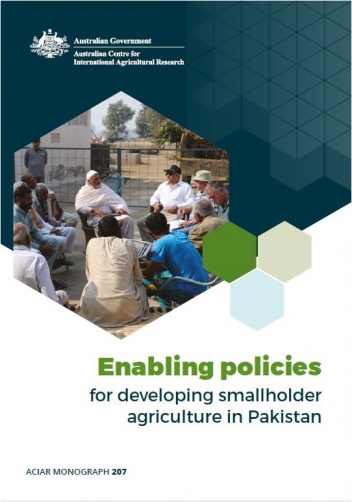
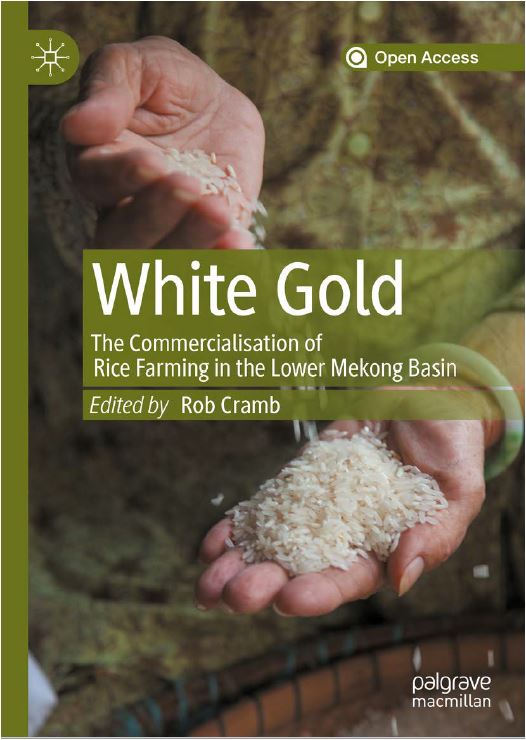
White gold: the commercialisation of rice farming in the Lower Mekong Basin
(Editor: Rob Cramb)
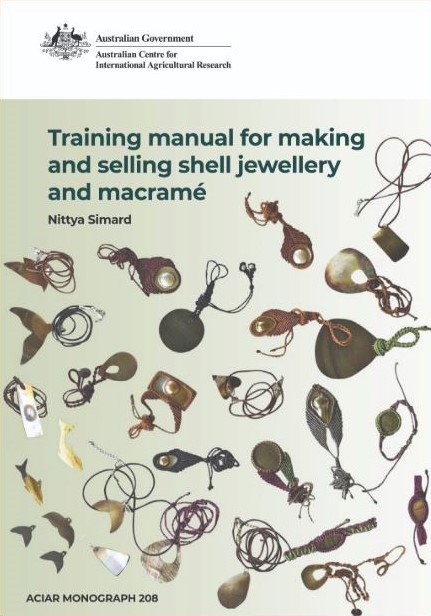
Training manual for making and selling shell jewellery and macramé
(Author: Nittya Simard)
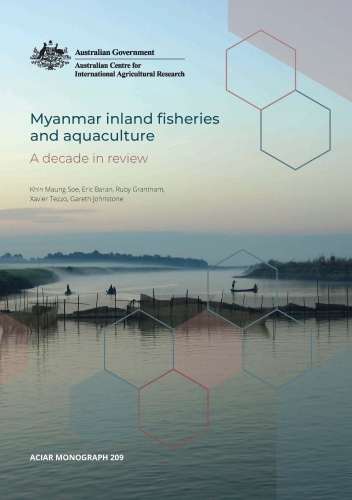
Myanmar inland fisheries and aquaculture: a decade in review
(Authors: Khin Maung Soe, Eric Baran, Ruby Grantham, Xavier Tezzo and Gareth Johnstone)
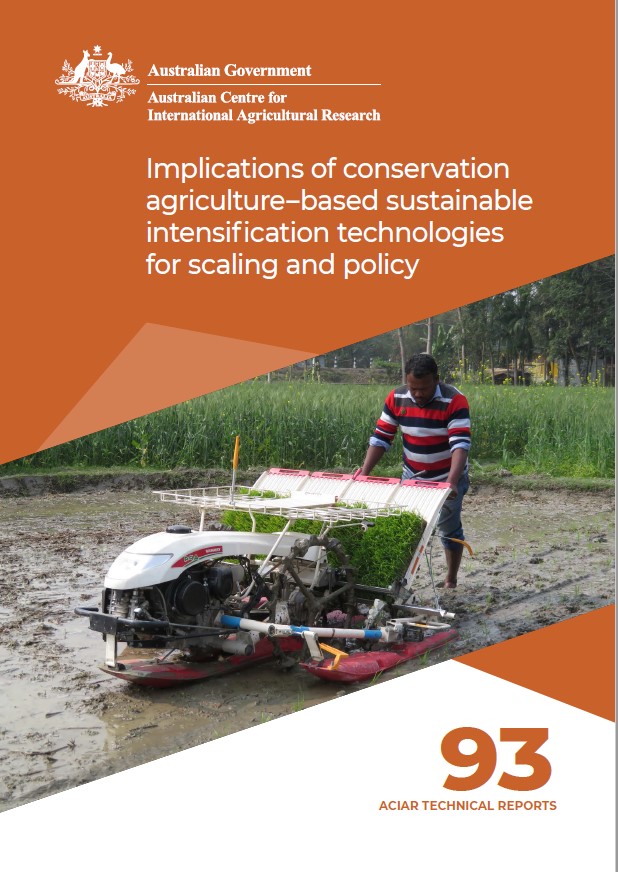
Implications of conservation agriculture-based sustainable intensification technologies for scaling and policy
(Authors: Peter R Brown, Toni Darbas, Avinash Kishore, Maria Fay Rola-Rubzen, Roy Murray-Prior, Md Mazharul Anwar, Md Shakhawat Hossain, Md Nur-E-Alam Siddquie, Rashadul Islam, Mamunur Rashid, Ram Datt, Ujjwal Kumar, Kausik Pradhan, KK Das, Tapamay Dhar, PM Bhattacharya, AK Chowdhury, A Ghosh, Bibek Sapkota, Dinesh Babu Thapa Magar, Surya Adhikari, Dipendra Pokharel, Fraser Sugden, Panchali Saikia, Sanjiv de Silva, Niki Maskey, Sofina Maharjan, Mahesh Gathala and TP Tiwari)
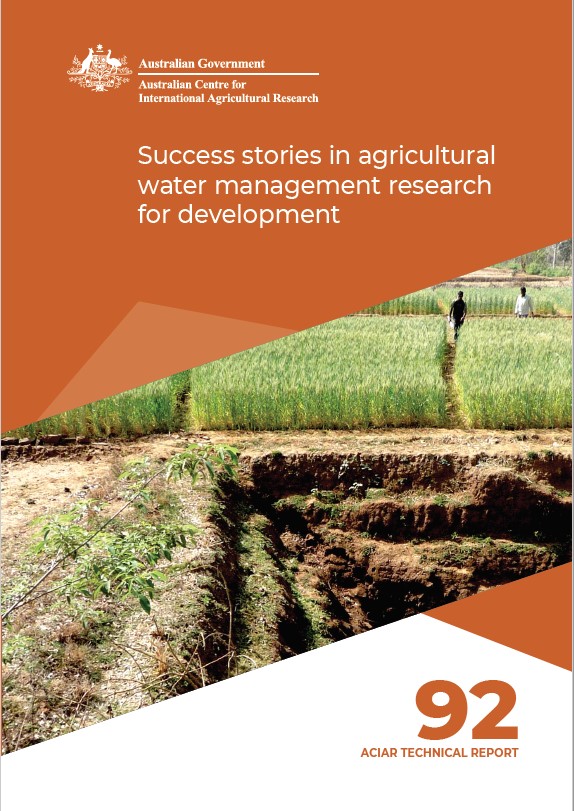
Success stories in agricultural water management research for development
(Editor: Dr Evan W Christen)
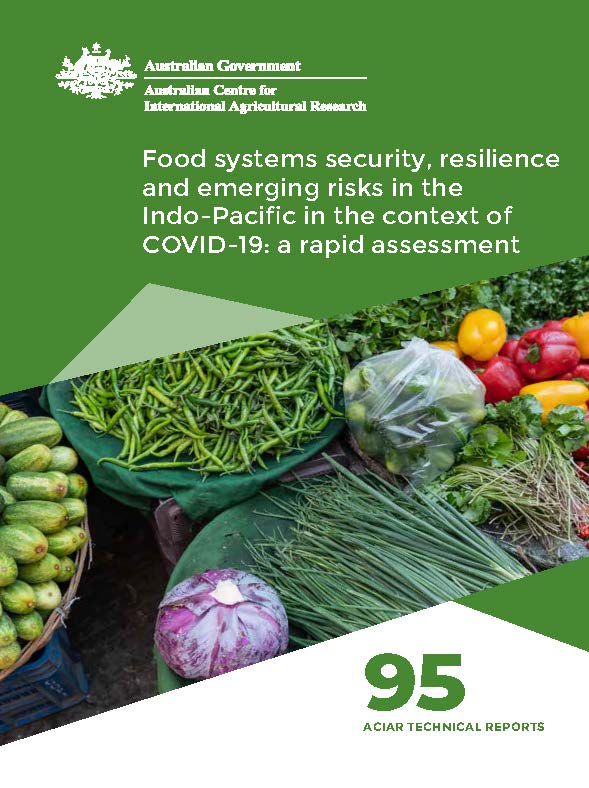
Food systems security, resilience and emerging risks in the Indo-Pacific in the context of COVID-19: a rapid assessment (Authors: Todd Sanderson, George Chapman, Daniel Walker and Peter Horne)
CASE STUDY
Promoting agricultural journalism in the Pacific
Media coverage of agricultural research projects and the benefits and outcomes to local communities is set to grow across the Pacific as a result of an outreach capacity-building initiative run by ACIAR and the Australian Broadcasting Corporation’s (ABC) International Development group.
Celebrating Agriculture in the News (CAN) was designed to help early-career journalists in the Pacific gain insights into new techniques and novel approaches they can take to reporting on agricultural research stories to make them interesting and informative for their audiences.
CAN was open to all emerging journalists from across the Pacific nations. Entries were submitted by published journalists working or studying in a range of countries including Fiji, Kiribati, Papua New Guinea, Samoa, Solomon Islands, Tonga and Tuvalu. They represented print, radio, television and digital media platforms.
Each entrant was judged on their already published work, but the prize for the top 16 was a chance to polish their reporting technique at a special masterclass run as part of the second Pacific Week of Agriculture in October 2019, held in Apia, Samoa.
The masterclass was officially launched by Ms Sara Moriarty, Australia’s High Commissioner to Samoa, at an event hosted by ACIAR CEO, Professor Andrew Campbell. The week-long training—which included discussions, workshops, networking and field trips—was led by veteran Australian journalist Philippa (Pip) Courtney from ABC TV Landline and Amelia Makutu, Country Liaison from the ABC Pacific Media Assistance Scheme.
